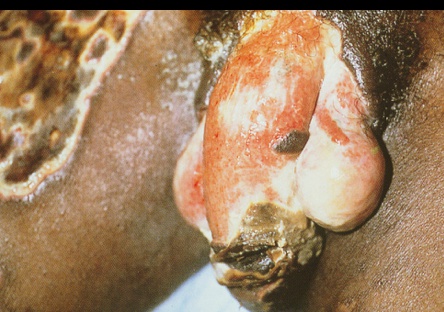Male Pathology
Hypospadius and Epispadius
Condition caused by failure of the urethral folds to fuse completely, which leads to an external urethral orifice open on the ventral surface of the penis.
- Associated with chordee (poorly developed penis that curves ventrally)
- More common than epispadias
- Surgically corrected to prevent UTIs
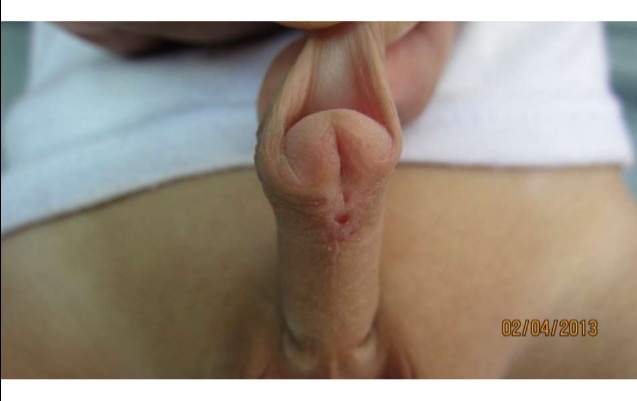
Epispadias: condition caused by faulty positioning of the genital tubercle during development, which leads to an external urethral orifice open on the dorsal surface of penis.
- Associated with exstrophy of the bladder.
Mnemonic: Epi, pee in your Eye, associated with Exstrophy
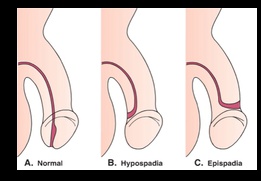
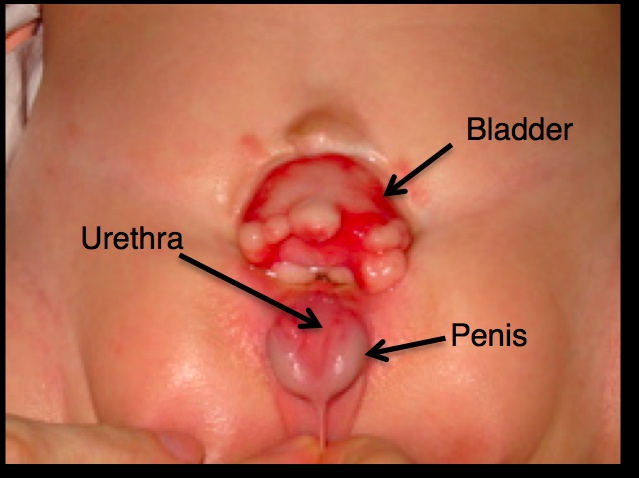
Condyloma and Squamous Cell Carcinoma
Condyloma
Condyloma: Due to HPV 6 and 11
Condyloma:
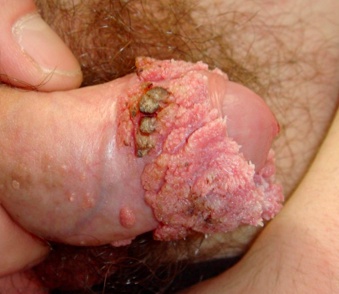
Condyloma: stuck on appearance
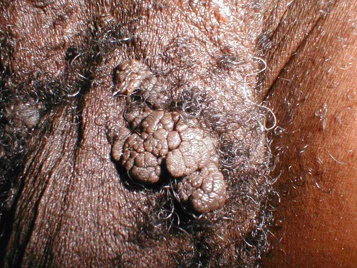
Condyloma histology
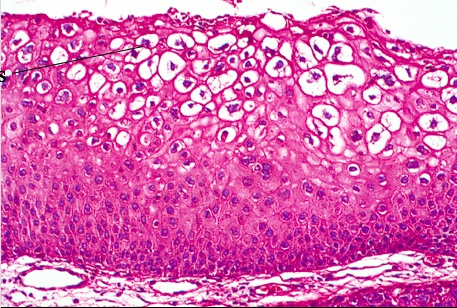 ..
..
SCC
Malignant proliferation of the squamous cells of penile skin. The current risk factors include:
-
HPV 16, 18 serotypes (2/3 of cases)
-
Lack of circumcision: foreskin acts as a nidus for inflammation and irritation if not properly cleaned and maintained.
-
Uncommon in USA
-
Very rare in circumcised individuals
-
Presents most commonly on the glans penis or mucosal prepuce..
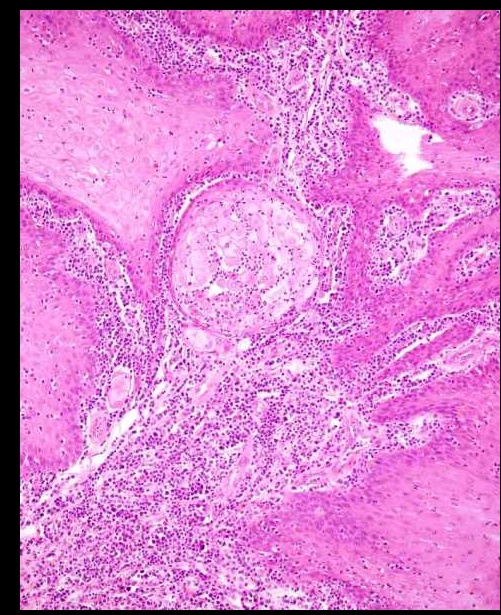
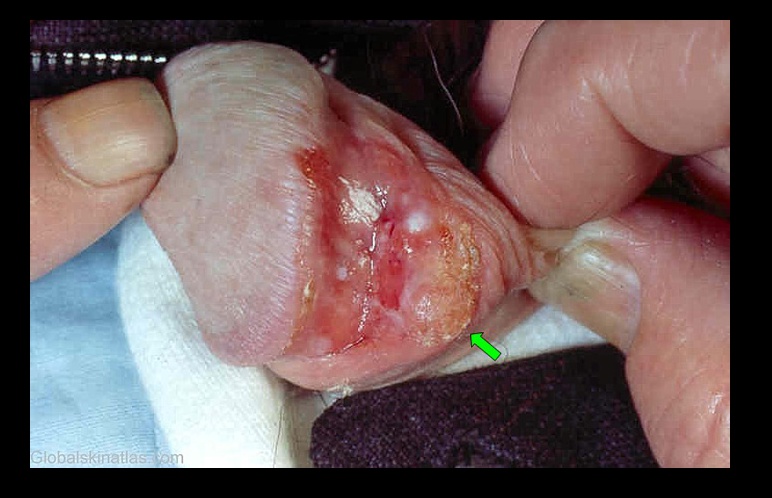
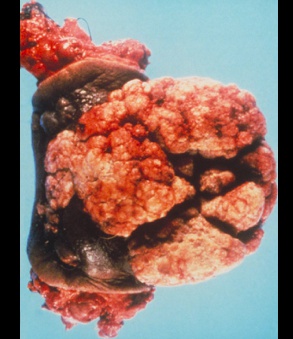
Full thickness dysplasia:
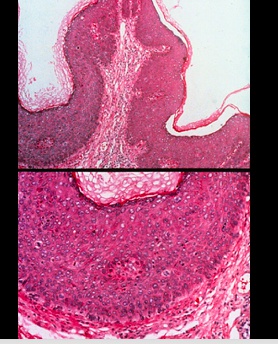
Slow growth and local metastases to regional lymph node.
Precursor in situ lesions:
- Bowen disease: penile shaft, scrotum. Presents as leukoplakia
- Erythroplasia of Queyrat: glans. Presents as erythroplakia
- Bowenoid papulosis: Presents as multiple reddish papules; seen in younger patients compared to other two (40s); doesn’t progress to invasive carcinoma..
Bowen’s Disease
Precursor CIS (carcinoma in situ) that has the potential to invade.
- Presents as a single plaque (leukoplakia) on shaft of the penis or scrotum.
- Affects men greater than the age of 40
- Associated with visceral malignancies.
Erythroplasia of Queyrat
Precursor CIS (carcinoma in situ) that has the potential to invade.
-
Presents as a single erythematous plaque involving the mucosal surface of the glans penis or prepuce
-
Affects men greater than the age of 40. Erythroplakia.
-
NO association with visceral malignancies (in contrast to Bowen’s Disease).
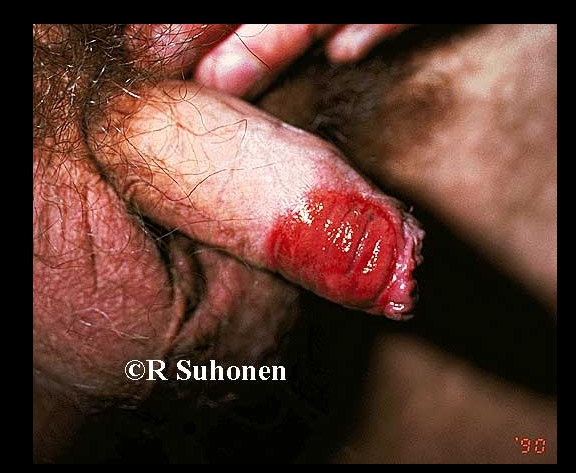
Bowenoid Papulosis
Precursor CIS (carcinoma in situ) that does not have the potential to invade, and thus does not progress to squamous cell carcinoma.
-
Presents as multiple pigmented, red-brown verrucoid (wart-like) lesions resembling condyloma acuminatum on external genitalia
-
Affects younger men.
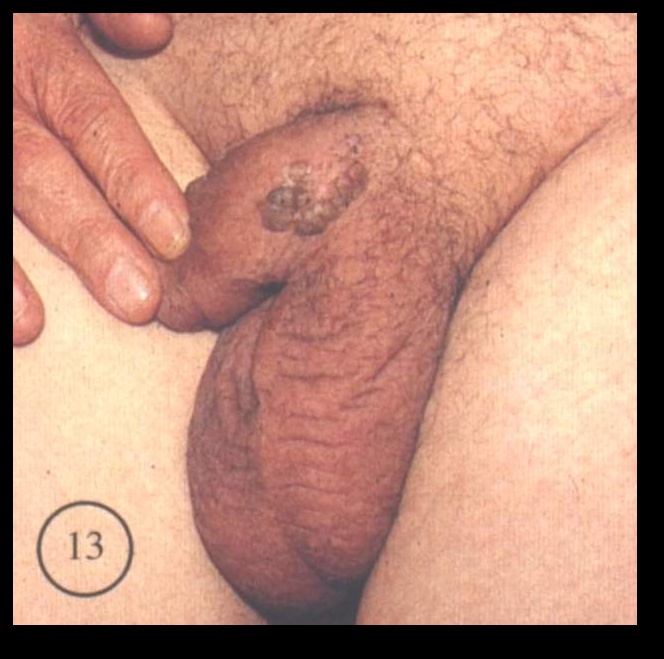
Other disorders of the Penis
Peryonie’s Disease
Subcutaneous fibrosis of the penis that leads to curvature in any (lateral) direction. (“Painful erection in wrong direction”).
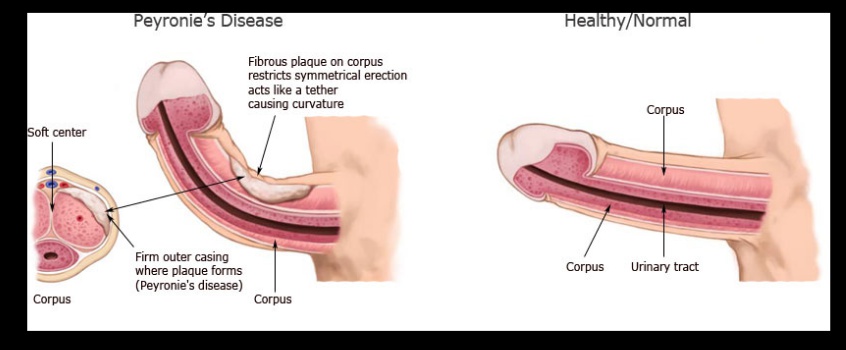
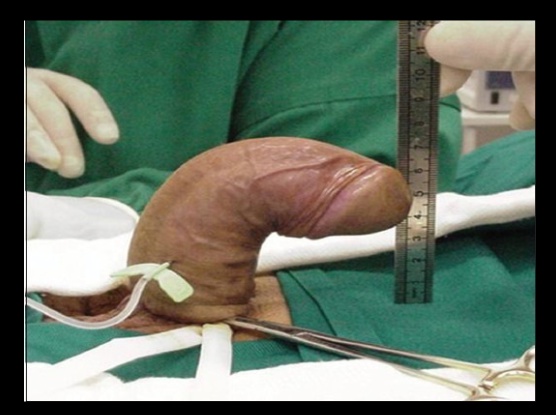
Phimosis
Condition that most commonly occurs in uncircumcised men where the orifice of the prepuce is too small to retract over head of penis, leading to an increased risk of infection. Could be congenital or acquired (poor hygiene leads to chronic inflammation and scarring).
- Treatment: circumcision
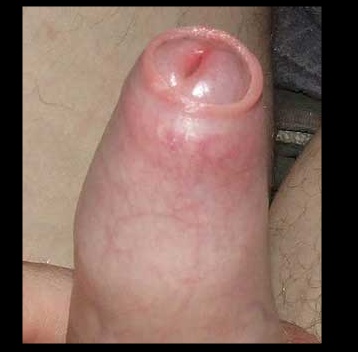
Balanitis/Balanoposthitis
Condition that involves inflammation of the prepuce and glans penis.
- common in uncircumcised men with poor hygiene
- causative aent: C. albicans, anaerobic bacteria
Priapism
Persistent abnormal erection of the penis that is not associated with sexual arousal. Common etiologies include:
- Sickle cell anemia (viscous blood)
- Trauma (venous blood not oxygenated = engorgement)
- **Drugs **(e.g. trazodone: “trazo-BONE”) (antidepressants and antipsychotics)
- Spinal cord injury
Urologic emergency: can infarct penis.
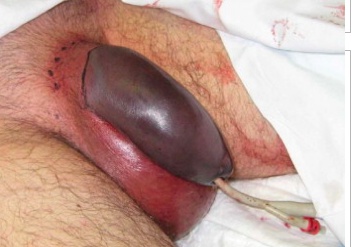
Diseases of Scrotum
Fournier’s Gangrene
Bacterial infection caused by Staph/Strep, resulting in necrotizing fasciitis of scrotum.
